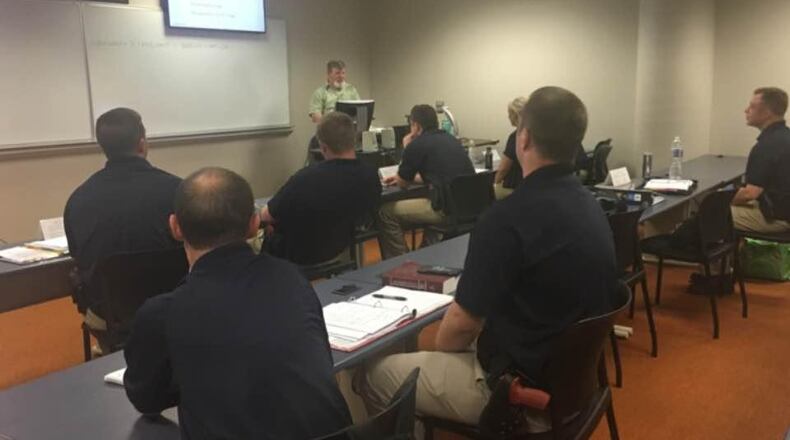The sheriff’s office will partner with superintendents at seven Clark County districts, including Clark-Shawnee, Greenon, Northeastern, Northwestern, Southeastern, Springfield and Tecumseh, where school resource officers will work with principals, staff and students. The sheriff’s office will also launch a marketing plan aimed at engaging female and minority candidates.
“The Clark County Sheriff’s Office and Clark State College recognize the need to have a diverse law enforcement workforce,” said Karen Benton, Associate Professor and Criminal Justice Program Coordinator at Clark State. “This recruitment partnership will provide high school students with the opportunity to become more familiar with the expansive law enforcement processes.”
Students will get hands-on experience and gain knowledge of law enforcement agency responsibilities as well as the college’s criminal justice program, Benton said. School resource officers will also provide information regarding the benefits of becoming an officer.
The program provides 18-year-old students with the opportunity to take two courses each semester before proceeding to Clark State’s Police Academy at age 20. After completing the academy, students will receive the course substitution credits that would finalize their Criminal Justice-Law Enforcement degree from Clark State.
“This partnership will provide students with the ability to work toward a self- paced degree from Clark State in criminal justice, leading to the ability to move on to the Clark State Police Academy,” Benton said. “Upon graduation and OPOTA testing, a student following this course of action could become eligible to become a law enforcement officer.”
About the Author

